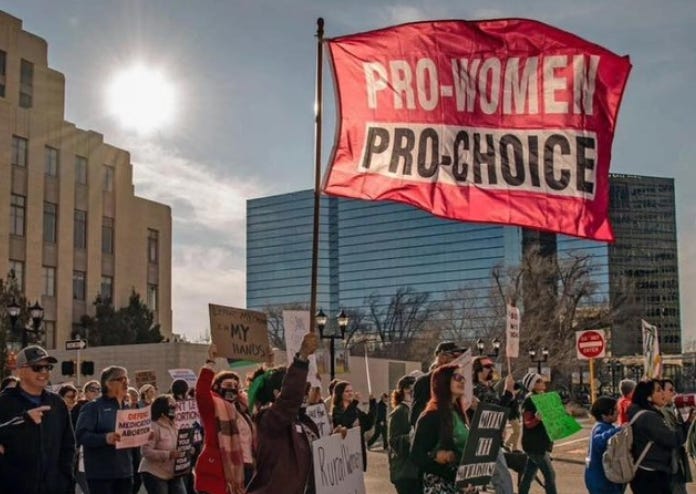New Mexico, Texas activists deal with local attacks on abortion access
Antiabortion advocates have sought to get local city councils, boroughs to pass restrictions on abortion-related travel
Along the Texas-New Mexico border, local governments have passed restrictions on travel that forbid their highways and roads from being used should the driver and passengers be headed toward an abortion clinic.
The efforts are the brainchild of Mark Lee Dickson, Director of Right to Life of East Texas and the Founder of Sanctuary Cities for the Unborn Initiative. Pro-choice activists in the area have said his goal is to get the issue before the Supreme Court so localities across the country can enact similar bans. The potential consequences of that could limit abortion care everywhere.
Krista Pietsch, spokeswoman of Eastern New Mexico Rising, said that most people are traveling to Albuquerque and Los Cruces to get abortions. That’s 200 miles away from the border.
“Obviously, if that's our only form of access, that makes zero access in this area,” Pietsch said. “It's already a problem.”
Dickson has cited the Comstock Act, an antiquated law that still is on the books despite being opposed by feminists like Margaret Sanger, as justification for why abortion medication shouldn’t be permitted to be mailed.
“He's really trying to force the Supreme Court's hand,” Dickson said. “So I don't think people really fully understand the ramifications of what this man is doing.”
The challenge to local ordinances passed in Hobbs and Clovis counties is before the state Supreme Court, which they expect a decision from next month.
“People should just know that while, yes, New Mexico is very protective of abortion rights, folks need to understand that that access is concentrated in our big cities,” Pietsch said. “And so there are many rural communities out here who are still struggling, still lacking, and still needing support.”
In Texas, activists have said that anti-abortion extremists rely on fear tactics that empower people to harass, investigate, or sue people seeking abortions and those who support them, such as the “bounty hunter” civil enforcement mechanism seen in SB 8 and the local ordinances restricting abortions.
Heather Allison, Public Policy and Communications Associate for Fund Texas Choice, said that local officials–even those who are antiabortion–have hesitated to pass the bans.
“There are concerns that they will be challenged through litigation,” Allison said. “There has also been a lot of opposition to these ordinances from the public – even though the anti-abortion extremists are targeting conservative areas, people are still concerned about the impacts of allowing someone to stalk, harass, or sue someone driving through their town.”
They have strategized with local organizers to contact their local city council and county commissioners to have them oppose these ordinances.
“It’s important to stress that Texas abortion bans impose liability on the people who help someone access an abortion, not on the abortion seeker themselves,” Allison said. “The 14th Amendment allows individuals to move freely across the country.”




